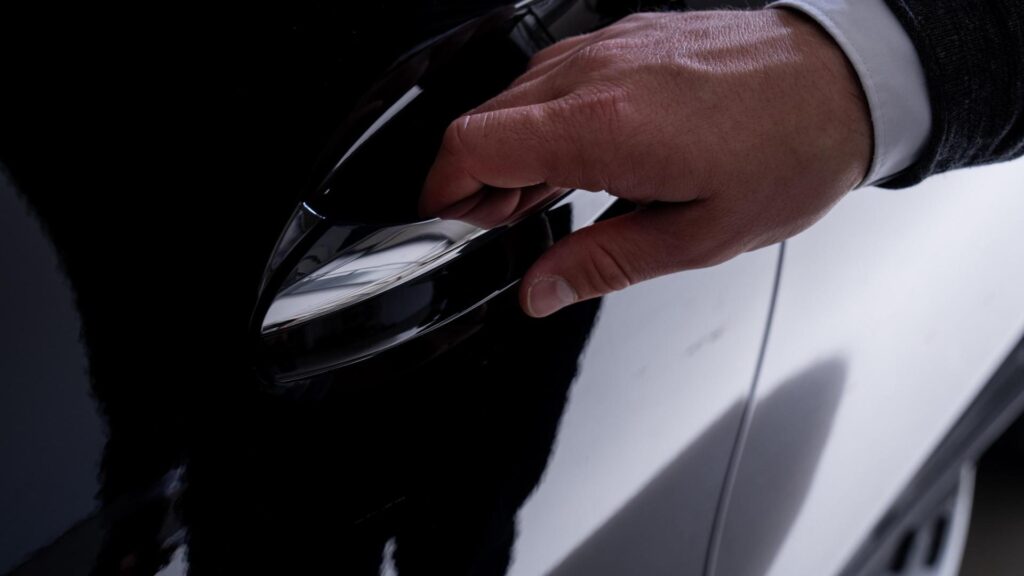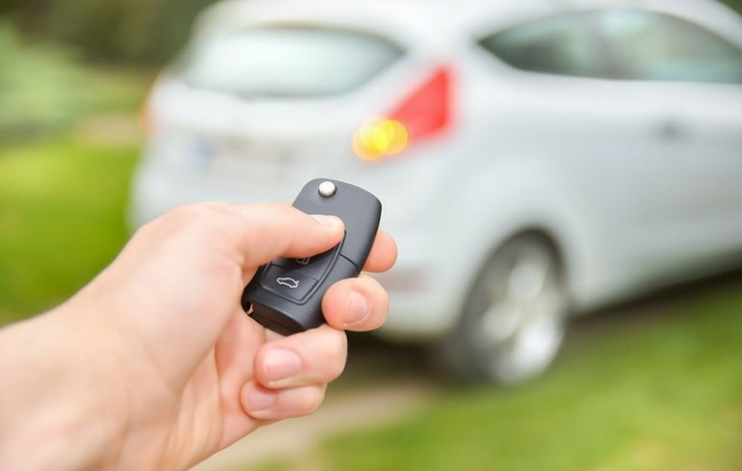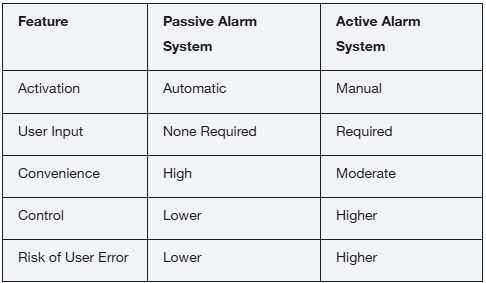When it comes to protecting your car, understanding the differences between passive and active alarm systems is crucial. Both types offer security, but they operate in distinct ways.
What Are Passive Alarm Systems?
Passive alarm systems activate automatically without requiring any input from the user. They are designed to engage whenever a specific event occurs, such as:
- Door or Window Sensors: These sensors trigger an alarm when a door or window is opened.
- Motion Detectors: These detect movement within a designated area.
- Automatic Immobilizers: These prevent a vehicle from starting without manual activation.

Passive systems provide a hands-off approach to security, ensuring that your property is protected even if you forget to arm the system.
What Are Active Alarm Systems?
Active alarm systems require manual activation by the user. This typically involves:
- Keypad Entry: Entering a code to arm or disarm the system.
- Remote Control: Using a key fob or remote to activate or deactivate the alarm.
- Manual Switches: Flipping a switch to engage the alarm.
Active systems offer more control to the user, allowing them to arm or disarm the system at their discretion.

Key Differences Summarized

Why the Difference Matters?
- Convenience: Passive systems offer greater convenience, as they eliminate the need for manual activation.
- User Error: Active systems are more prone to user error, as they rely on the user to remember to arm the system.
- Security: Both systems can be effective, but passive systems provide continuous protection, even when the user forgets to arm the system.
Proper Maintenance and Risk Mitigation
- Regular Testing: Test your alarm system regularly to ensure it’s functioning correctly.
- Battery Checks: Replace batteries in sensors and key fobs as needed.
- Professional Inspections: Consider having a professional inspect your system annually.
Conclusion
Choosing between passive and active alarm systems depends on your individual needs and preferences. Passive systems offer convenience and continuous protection, while active systems provide greater control. Understanding the differences can help you make an informed decision to protect your car.
